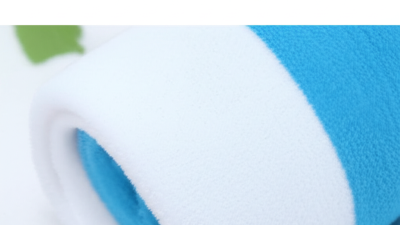Leave Your Message
As the global textile industry continues to evolve towards sustainability and innovation, the emergence of Automatic Lyocell Equipment stands at the forefront of this transformation. Recent industry reports indicate that the global Lyocell fiber market is projected to reach USD 2.51 billion by 2025, growing at a CAGR of 10.5% from 2020. This growth is driven by increasing consumer demand for eco-friendly textiles and the advantages offered by Lyocell fibers, such as biodegradability and a low environmental footprint during production. China's advancements in Automatic Lyocell Equipment not only enhance efficiency and scalability but also position the country as a pivotal player in the global shift towards sustainable manufacturing practices. In this blog, we will explore the significance of these technological innovations and provide a detailed checklist for leveraging China's best Automatic Lyocell Equipment to unleash global excellence in the textile sector.

China's automatic Lyocell equipment is transforming the global textile industry, showcasing innovative features that enhance sustainability and efficiency. As environmental concerns regarding synthetic fabrics amplify, Lyocell has emerged as a champion for eco-friendly fashion. This revolutionary fiber is manufactured through a closed-loop process that minimizes waste and pollutants, addressing the growing demand for sustainable textiles. The precision of automatic equipment ensures consistent quality, making Lyocell not just a sustainable choice, but also a high-performing one.
Recent developments indicate significant growth in the Lyocell fiber market, with projections suggesting a surge in demand by 2033. The enhancements brought forth by China's automatic equipment facilitate this growth by reducing production costs and improving scalability. Innovations in machinery allow for better fiber quality and reduced environmental footprints, positioning Chinese Lyocell as a preferable option in the global marketplace. As manufacturers worldwide seek sustainable alternatives, the innovative features of China’s automatic Lyocell equipment are setting new standards for eco-conscious production, paving the way for a more sustainable fashion future.
Sustainable fashion is no longer just a trend; it's a necessity. As the apparel industry faces mounting scrutiny over its environmental footprint, innovative alternatives like lyocell are paving the way for a more responsible future. Lyocell, made from sustainably sourced wood pulp, stands out among other semi-synthetic fibers like viscose and rayon due to its closed-loop production process, which minimizes water and chemical usage. This method not only reduces pollution but also transforms waste into a resource, making lyocell a compelling choice for eco-conscious brands seeking to mitigate their impact.
Additionally, the shift towards greener fabrics is gaining momentum as consumers increasingly prefer materials that reflect their values. Recycled and organic options are gaining traction, aligning perfectly with the goals of brands committed to sustainable practices. By incorporating lyocell into their collections, designers are not only meeting the demand for lower-impact textiles but also contributing to a cultural shift towards ethical production standards.
This transformative approach promises a more sustainable future for the fashion industry, reducing its environmental damage while simultaneously enhancing consumer awareness of responsible choices.
The evolution of fiber production technologies has garnered significant attention, particularly in the context of sustainability. Lyocell, a fiber made from sustainably sourced cellulose, presents a compelling alternative to traditional fiber production methods. Unlike conventional cotton and synthetic fibers, the Lyocell production process utilizes a closed-loop system that minimizes water usage and chemical waste. Recent studies highlight that Lyocell production can reduce the water footprint dramatically, making it an eco-friendlier choice in the textile industry.
As the Lyocell fiber market is projected to reach USD 3.43 billion by 2032, driven by rising demand for sustainable textiles, brands are increasingly recognizing the benefits of this advanced fiber technology. The adoption of Lyocell not only addresses environmental concerns but also adds value through its superior properties, such as enhanced durability and comfort. Moreover, in a market focused on circularity, the potential for recycling Lyocell fibers aligns perfectly with recent industry trends aiming for sustainable practices in textiles and apparel.
Tips: When exploring sustainable textiles, consider the lifecycle of materials used in production. Opt for brands that prioritize closed-loop systems and transparent sourcing of fibers. Staying informed on market trends will also help you make eco-friendly choices in your wardrobe.
Automation has revolutionized the manufacturing landscape, particularly in the production of Lyocell fibers. The integration of advanced technology into Lyocell equipment not only streamlines the manufacturing process but also significantly enhances overall efficiency.
Automated systems optimize workflows, reduce human error, and accelerate production rates. As a result, manufacturers can meet growing global demand while maintaining high standards of quality and sustainability.
The role of automation in Lyocell equipment manufacturing extends beyond mere efficiency improvements. Innovative technologies facilitate precise control over the production parameters, ensuring consistent quality in every batch. This precise control translates to better resource management, reduced waste, and lower environmental impact—a crucial consideration for the textile industry today. By embracing these automated solutions, manufacturers position themselves as leaders in sustainable practices, ultimately contributing to a more responsible and eco-friendly global textile market.
The global textile industry is increasingly shifting towards sustainable fabrics, with a particular emphasis on Lyocell—a fiber derived from sustainably sourced wood pulp. According to a recent report by Transparency Market Research, the Lyocell fiber market is projected to grow at a compound annual growth rate (CAGR) of 8.2% between 2021 and 2028, highlighting its rising acceptance in the fashion and home textile industries. As brands prioritize eco-conscious alternatives, embracing Lyocell can be a key strategy for future growth while minimizing environmental impacts.
Tip: When considering sustainable fabric options, look for certifications such as the OEKO-TEX Standard 100 or the FSC certification, which ensure that the materials are produced with minimal environmental impact.
Additionally, advancements in automatic Lyocell manufacturing equipment in China have positioned it as a leader in sustainable fabric production. Enhanced automation not only boosts efficiency but also reduces waste, making the production process more eco-friendly. As consumer awareness around sustainability grows, companies investing in these innovative technologies will be better equipped to meet market demands while safeguarding the planet.
Tip: Monitor industry trends and consumer preferences; investing in new technologies may also provide your brand with a competitive edge in the rapidly evolving sustainable market.
